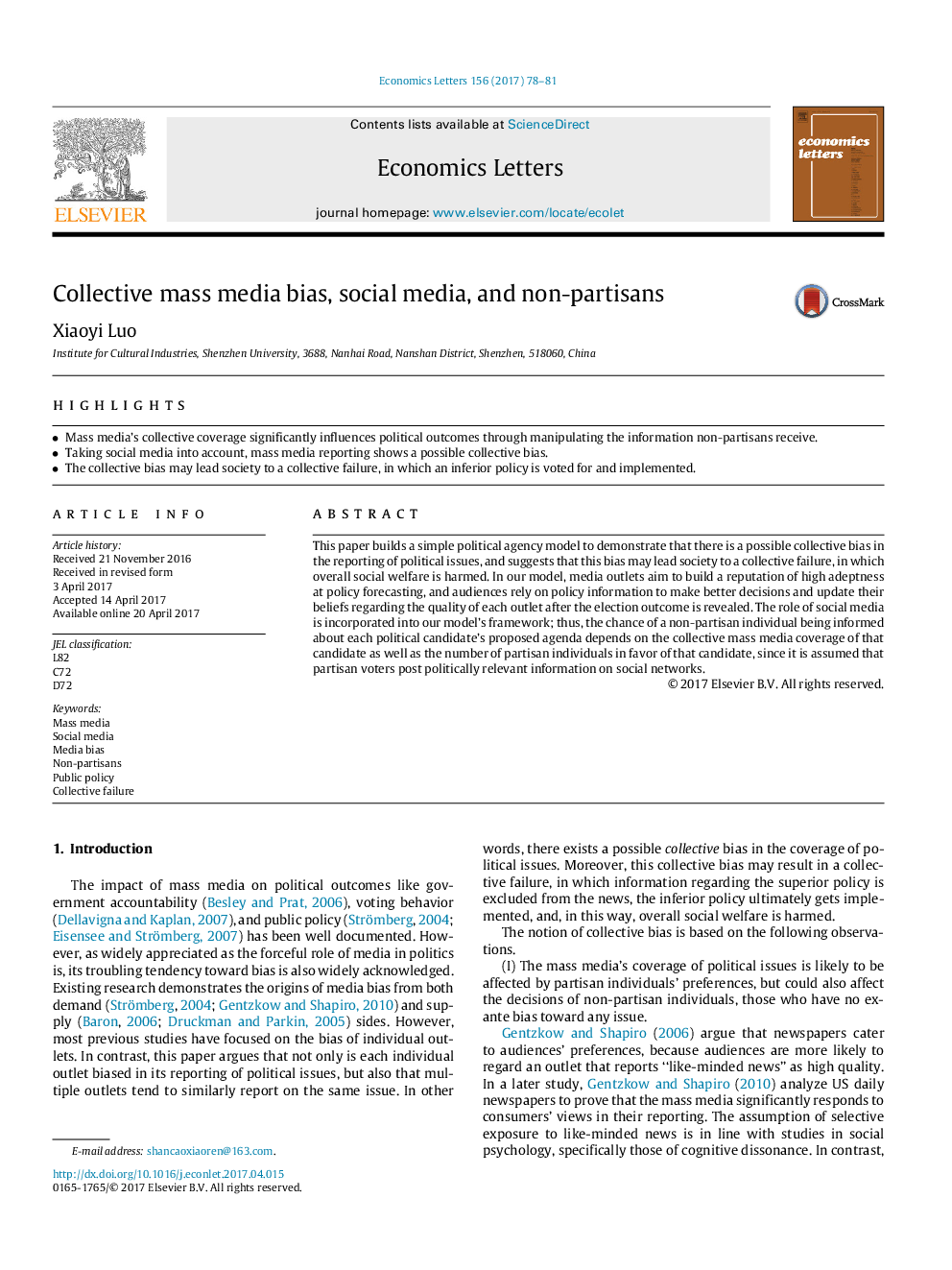| کد مقاله | کد نشریه | سال انتشار | مقاله انگلیسی | نسخه تمام متن |
|---|---|---|---|---|
| 5057833 | 1476607 | 2017 | 4 صفحه PDF | دانلود رایگان |
کلمات کلیدی
1. مقدمه
2. مدل
2.1 تنظيمات عمومي
2.2 زمانبندي
2.3 تعادل چندگانه
شكل1. تعادل چندگانه پوشش رسانه جمع
3. نتيجه
- Mass media's collective coverage significantly influences political outcomes through manipulating the information non-partisans receive.
- Taking social media into account, mass media reporting shows a possible collective bias.
- The collective bias may lead society to a collective failure, in which an inferior policy is voted for and implemented.
This paper builds a simple political agency model to demonstrate that there is a possible collective bias in the reporting of political issues, and suggests that this bias may lead society to a collective failure, in which overall social welfare is harmed. In our model, media outlets aim to build a reputation of high adeptness at policy forecasting, and audiences rely on policy information to make better decisions and update their beliefs regarding the quality of each outlet after the election outcome is revealed. The role of social media is incorporated into our model's framework; thus, the chance of a non-partisan individual being informed about each political candidate's proposed agenda depends on the collective mass media coverage of that candidate as well as the number of partisan individuals in favor of that candidate, since it is assumed that partisan voters post politically relevant information on social networks.
Journal: Economics Letters - Volume 156, July 2017, Pages 78-81
